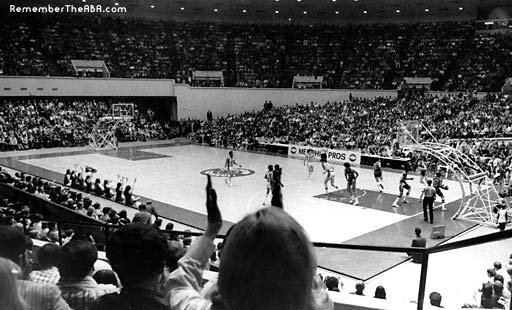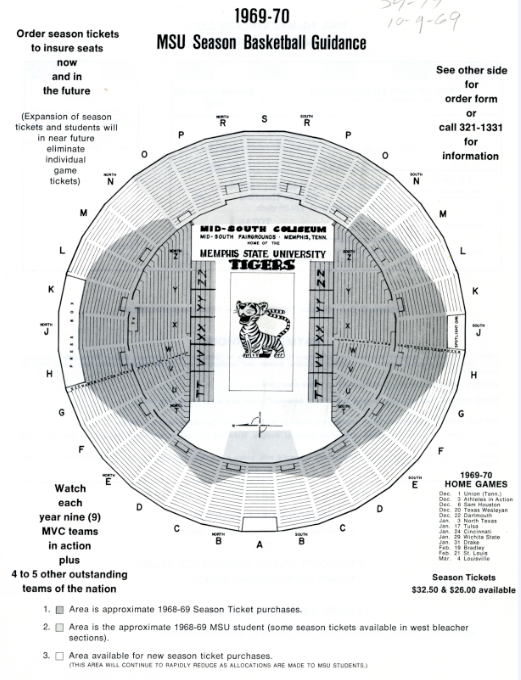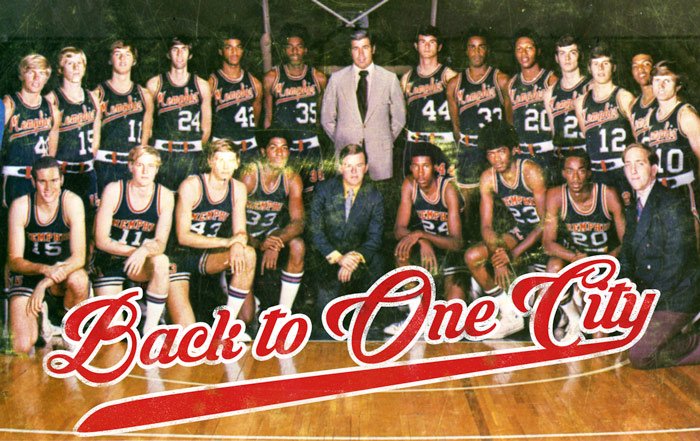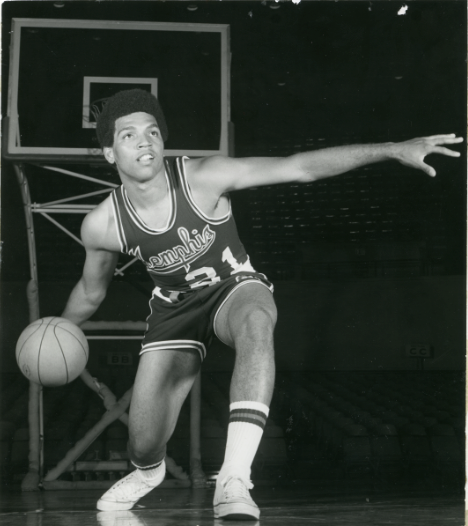“Memphis Hoops is a must-read for anyone interested in Memphis basketball or those looking to better understand the city's racial divide in the wake of the 1968 assassination of Dr. Martin Luther King Jr. “
— Adam Criblex, author of Tall Tales & Short Shorts: Dr. J., Pistol Pete, and the Birth of the Modern NBA
“ In his new book Memphis Hoops, Keith Wood investigates the city’s history of race and basketball — and tells a complex, riveting story.
— Aram Goudsouzian, author of King of the Court, Bill Russell and the Basketball Revolution







Memphis Hoops:
Race, Basketball & the City, 1969-1997
Memphis Hoops tells the story of basketball in Tennessee’s southwestern-most metropolis following the 1968 assassination of Martin Luther King Jr. Keith B. Wood examines the city through the lens of the Memphis State University basketball team and its star player-turned-coach Larry Finch. Finch, a Memphis native and the first highly recruited Black player signed by Memphis State, helped the team make the 1973 NCAA championship game in his senior year. In an era when colleges in the south began to integrate their basketball programs, the city of Memphis embraced its flagship university’s shift toward including Black players. Wood interjects the forgotten narrative of LeMoyne-Owen’s (the city’s HBCU) 1975 NCAA Division III National Championship team as a critical piece to understanding this era. Finch was drafted by the Lakers following the 1973 NCAA championship but instead signed with the American Basketball Association’s Memphis Tams. After two years of playing professionally, Finch returned to the sidelines as a coach and would eventually become the head coach of the Memphis State Tigers.
Wood deftly weaves together basketball and Memphis’s fraught race relations during the post-civil rights era. While many Memphians viewed the 1973 Tigers’ championship run as representative of racial progress, Memphis as a whole continued to be deeply divided on other issues of race and civil rights. And while Finch was championed as a symbol of the healing power of basketball that helped counteract the city’s turbulence, many Black players and coaches would discover that even its sports mirrored Memphis’s racial divide. Today, as another native son of Memphis, Penny Hardaway, has taken the reigns of the University of Memphis’s basketball program, Wood reflects on the question of progress in the city that saw King’s assassination little more than forty years ago.
In this important examination of sports and civil rights history, Wood summons social memory from an all-too-recent past to present the untold—and unfinished—story of basketball in the Bluff City.
Dennis King
Retired Basketball Coach Brentwood HIgh (Nashville)
During my first twenty years of attending the State Basketball Tournament, I have to admit that I couldn’t imagine any of my Brentwood teams ever stepping onto the same floor with the Memphis Juggernauts that appeared every year in Murfreesboro.
The 1973 Memphis State team made a huge imprint on me at the time. Of course, Bill Walton’s performance in the finals was one for the ages, but Larry Finch was great in every game of their tournament run. Your portrayal of his competitiveness and leadership brought his character into sharp focus. I admire him even more since reading your book.
I also enjoyed learning about Lemoyne-Owen’s national championship, the ABA’s futile franchise (I was a Pittsburgh Pipers/Condors fan), and finally, the Grizz finding a home (we stole the Grizzly logo for our Bruin basketball practice gear.)
Finally, I commend you on the extensive research that was required to write such an insightful book. The messy and scandal-plagued Memphis politics color so much of the Bluff City history. From Nathan Bedford Forest to MLK to Prince Mongo of the planet Zambodia, Memphis is a fascinating place. ~ Dennis King
(Refuse to be Ordinary - by Coach King can be found by clicking on the book to the left)


